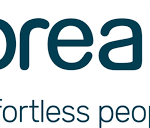I had always believed that May Day was a public holiday as it was a celebration of the return of Spring or a pagan fertility festival signified by the maypole – the tree representing masculine energy and the ribbons and floral garlands that adorned it representing feminine energy.
However, on the other side of the Atlantic the origins of May Day, more commonly known in the US as Labour Day, go back to 1884 when at a convention in Chicago, American trade unions frustrated with the exploitative practices of employers and long 12 hour days, declared that from May 1, 1886, eight hours would constitute a day’s labour. They warned that if their demand was not met, workers across the US would strike.
Two years later, that is exactly what happened.
On May 1, 1886, as many as 300,000 workers walked off their jobs, followed by thousands more in the next few days. In Chicago workers and their families took to the streets.
During a protest in Haymarket Square on May 4 of that year, a bomb was thrown into police lines, and officers responded by firing into the crowd injuring 200 workers. In all, 7 police officers and 20 workers died.
May 1 became about the fight for better working conditions and is known as International Worker’s Day.
Minimum wage increases
This is still relevant today in 2021. The UK is known for having one of the best workers’ right records in the world. Most recently, the government has taken further steps to support workers’ rights by raising the minimum wage. The National Living Wage is now 33% higher than it was in 2015 and a naming campaign has been launched to identify companies who fail to pay the minimum wage.
Flexible working
During the pandemic, workers have had more freedom over flexible working and as we gradually come out of lockdown, it is important to understand that employees may have concerns about the risks associated with returning to the workplace and employers will need to be flexible to ensure a smooth transition.
PSHR has put together a Return to Work toolkit to support you through this transition.
Available for just £395 plus VAT – the kit includes checklists, policies, communication plans and template letters. For more information visit https://pshumanresources.co.uk/ or contact us at hello@pshumanresources.co.uk





